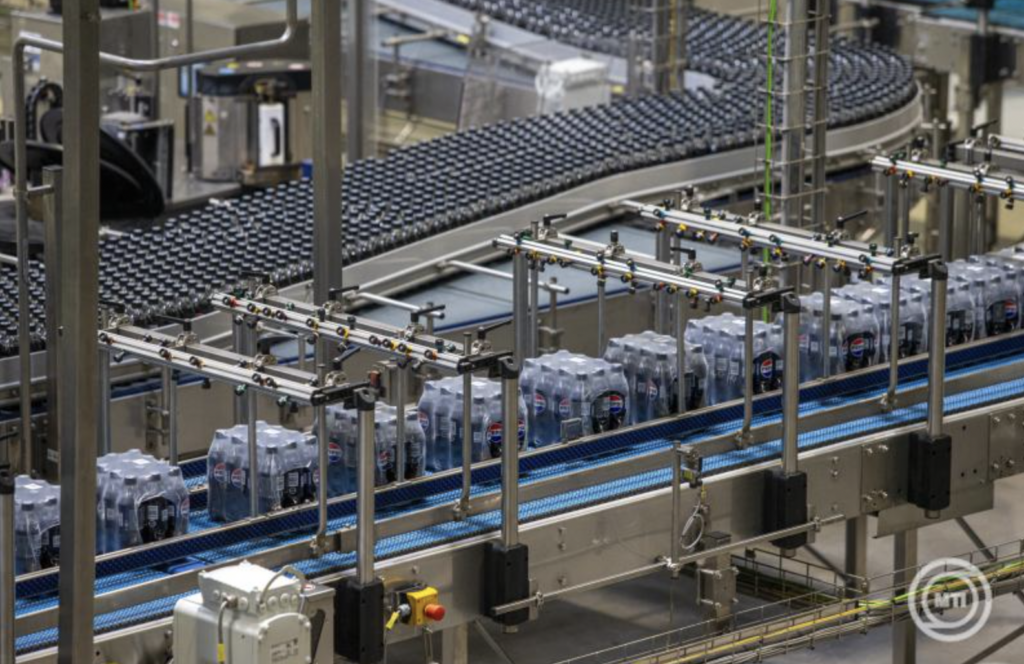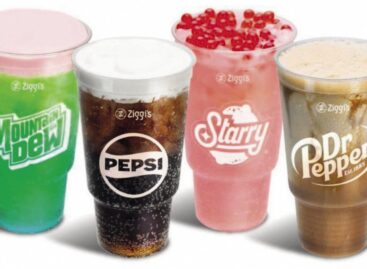Pepsi production returns to Hungary
Following the investment of Szentkirályi Magyarország Kft., Pepsi production is returning to Hungary, and from now on, Pepsi products found in domestic stores will be produced locally instead of imported, Minister of Foreign Affairs and Trade Péter Szijjártó announced on Tuesday in Szentkirály.

According to a statement by the Ministry of Foreign Affairs and Trade, the Minister said at the factory inauguration ceremony of Szentkirályi Magyarország Kft. that this is one of the milestones of the mineral water and soft drink manufacturer’s development program worth approximately 11 billion forints, which started in 2021, and as a result, the company’s bottling capacity has significantly expanded.
In his speech, he highlighted that the state provided 3.8 billion forints in support of the investment, thus facilitating the bottling demand for mineral waters and Pepsi products to be met locally.
“From now on, Pepsi products consumed in Hungary will no longer have to be imported from abroad (…) So, in practice, instead of imports, it will be our own production,”
– he said.
He also specifically addressed environmental aspects, highlighting that trucks will now have to travel one and a half million kilometers less, and in addition, the capacity of the water treatment plant has been expanded and a wastewater treatment plant has been built.
He called it important that Szentkirályi continued to remain Hungarian in its international cooperation with the Italian Mattoni 1873.
“Szentkirályi continues to be Hungarian in a large international cooperation. We, as a small Central European nation, appreciate this greatly. Just as bringing Pepsi production home is not only an 11 billion forint investment, but also an important emotional issue, it is an emotional issue for us, Hungarians, that the Hungarian brands we have built truly remain Hungarian brands,”
– he stated.
Péter Szijjártó announced that Italian companies are among Hungary’s ten largest investment communities, Italy is Hungary’s sixth most important trading partner, and last year it became its fourth most important export market for the first time.
He also touched on the fact that Bács-Kiskun County has provided such economic performance in the last ten years that unemployment has halved and industrial production has doubled.
He underlined that the region is one of the strongholds of European car manufacturing, but the food industry is also an opportunity for diversification, which they seem to be taking advantage of.
In this regard, he recalled the crises of the past period, and called it important to draw lessons, and – as he emphasized – one of these is that the ability to self-sufficient in food is a strategically important issue.
He noted that the food industry is a strategic sector in our country anyway, employing more than 140,000 people.
“In the past ten years, 287 large food industry investments have been made in Hungary with government support, worth a total of 1,400 billion forints, and these have also contributed greatly to the fact that in ten years we have reached a point where one million more people are employed today than a decade ago,”
– he said.
“One of the consequences of these many food industry investments has been that this sector has become truly crisis-resistant, as there were no supply problems in Hungary during Covid, for example,”
– he added.
Related news
Coca-Cola, Philadelphia, Nutella Among Top FMCG Brands In Western Europe: NIQ
🎧 Hallgasd a cikket: Lejátszás Szünet Folytatás Leállítás Nyelv: Auto…
Read more >A star is born – say hello to dirty soda!
🎧 Hallgasd a cikket: Lejátszás Szünet Folytatás Leállítás Nyelv: Auto…
Read more >PepsiCo launching prebiotic versions of its namesake soda
🎧 Hallgasd a cikket: Lejátszás Szünet Folytatás Leállítás Nyelv: Auto…
Read more >Related news
(HU) Átadták a SIRHA Budapest 2026 Innovációs Termékverseny díjait
🎧 Hallgasd a cikket: Lejátszás Szünet Folytatás Leállítás Nyelv: Auto…
Read more >How does the forint exchange rate affect consumer prices?
🎧 Hallgasd a cikket: Lejátszás Szünet Folytatás Leállítás Nyelv: Auto…
Read more >HELL CITY has arrived, led by Michele Morrone
🎧 Hallgasd a cikket: Lejátszás Szünet Folytatás Leállítás Nyelv: Auto…
Read more >









